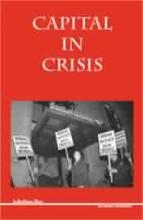Capital in Crisis :: Causes, Implications and Proletarian Response
“FOR many a decade past, the history of industry and commerce is but the history of the revolt of modern productive forces against modern conditions of production, against the property relations that are the conditions for the existence of the bourgeois and of its rule. It is enough to mention the commercial crises that, by their periodical return, put the existence of the entire bourgeois society on its trial, each time more threateningly. …In these crises, there breaks out an epidemic that, in all earlier epochs, would have seemed an absurdity - the epidemic of over-production. Society suddenly finds itself put back into a state of momentary barbarism… And why? Because there is too much civilisation, too much means of subsistence, too much industry, too much commerce. … And how does the bourgeoisie get over these crises? On the one hand, by enforced destruction of a mass of productive forces; on the other, by the conquest of new markets, and by the more thorough exploitation of the old ones. That is to say, by paving the way for more extensive and more destructive crises, and by diminishing the means whereby crises are prevented.”
-- The Communist Manifesto (1848)
“THE contradictions inherent in the movement of capitalist society impress themselves upon the practical bourgeois most strikingly in the changes of the periodic cycle, through which modern industry runs, and whose crowning point is the universal crisis. That crisis is once again approaching, although as yet but in its preliminary stage; and by the universality of its theatre and the intensity of its action will drum dialectics even into the heads of the mushroom-upstarts of the new, holy Prusso-German empire.”
-- Karl Marx, 1873 (Afterword to the second German edition of Capital Volume I)

